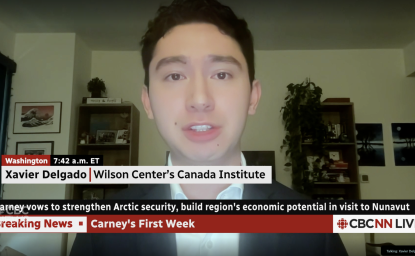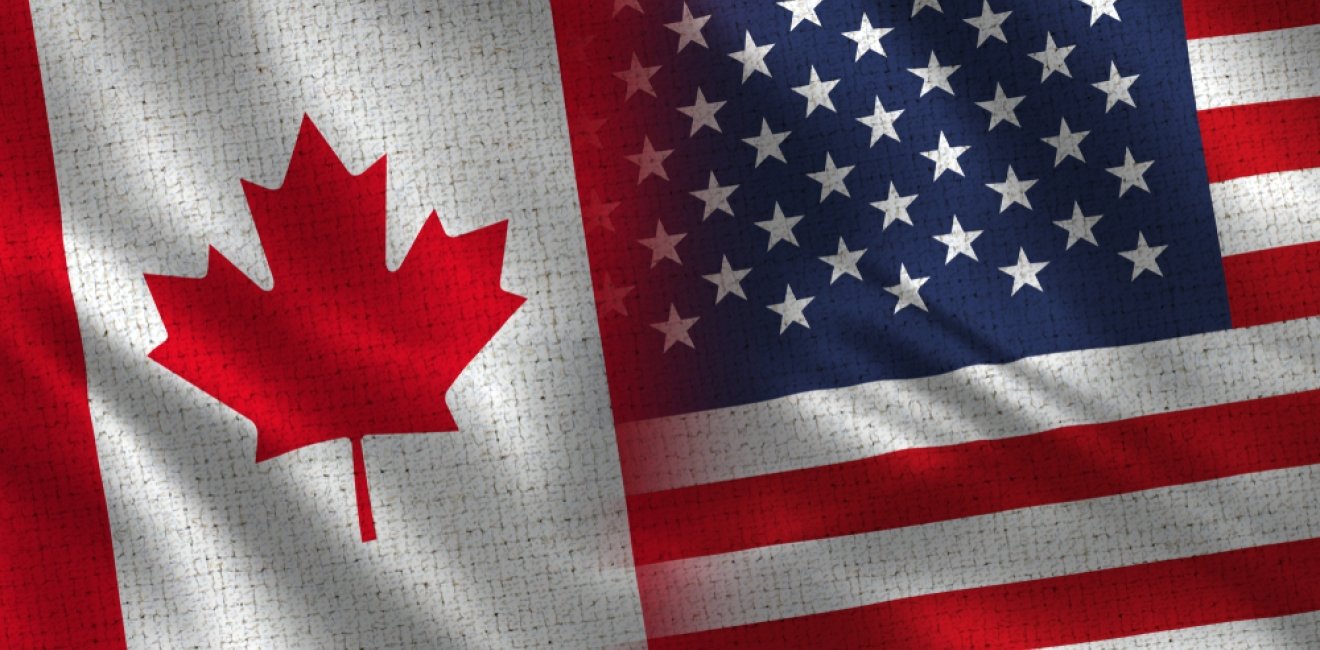On November 28, the United States lost one of the leading scholars of the role of think tanks, Dr. James G. McGann. McGann founded the Think Tanks and Civil Societies Program at the University of Pennsylvania to track the emergence of policy research institutes in the development of public policy in the United States and around the world. Many think tank presidents came to rely on McGann’s work to benchmark their performance as evidenced by numerous tributes to his work following his passing.
McGann included Canadian think tanks in his annual surveys as they grew in number and quality. To put McGann’s work into context, Canada Institute director Christopher Sands turned to Canada’s per-eminent expert on think tanks, Dr. Donald Abelson, author of Do Think Tanks Matter? Assessing the Impact of Public Policy Institutes now available in its third edition (2018) from McGill Queen’s University Press.
Sands: Don, when did you first encounter James McGann and his work?
Abelson: I was first made aware of Jim McGann’s work on think tanks when I was conducting interviews at the Hoover Institution for my doctoral thesis in the late-1980s. Jim was a National Fellow at Stanford, and I was told by several people on campus to look him up. It was one of the best decisions I have ever made. When I reached out to Jim, he could not have been more helpful. Over the years, we kept in touch, exchanging ideas about think tanks and how we saw the field evolving.
Shortly after I completed my doctoral studies in 1992, Jim was kind enough to invite me to participate in a Think Tank Forum he organized for the Lauder Institute at the University of Pennsylvania that same year. I was a junior scholar from Canada who was studying US think tanks, and Jim went out of his way to make me feel welcome. In the years that followed, we attended several conferences together in Spain, Germany, China, Israel, and beyond, and I always benefitted from his keen insights and expertise.
Sands: What made McGann’s work so influential with scholars like you, studying think tanks across different countries and political systems?
Abelson: Jim was a pioneer in the study of think tanks. With years of experience working for funding agencies, public policy research institutes, and universities, he understood the think tank landscape in the United States and around the world better than most. He was only too willing to engage a host of stakeholders in important conversations about how these eclectic and diverse organizations could play a critical role in shaping the discourse around key policy issues. For Jim, studying think tanks did not simply entail understanding the structure and make-up of these organizations and the people who populated them. It was about appreciating both the political and policy-making environment they inhabited and the various economic, social and political factors that shaped their behavior. He also appreciated that while think tanks were often treated as an American phenomenon, these organizations were taking root throughout the advanced and developing world, and therefore, had to be examined in a comparative context. He was among the first scholars to situate think tanks within a global context. Jim also appreciated the need to explore how directors and presidents of think tanks tried to position their organizations more strategically in a competitive marketplace of ideas and spent a lot of time dissecting their management and decision-making styles. He often made the point that no two think tanks were exactly alike. They had different structures, modes of operation, and approaches to generating the most traction and attention for the work of their institutes. This is one of the reasons why he was so interested in including the perspectives of think tank leaders in his studies. He wanted to draw on first-hand accounts of what think tank leaders were thinking as they employed a range of strategies to affect policy change.
Despite the impressive number of books Jim wrote, what he will be remembered for is his development of a massive database of think tanks around the world, and his determination to create a system to rank policy institutes according to a defined set of criteria. We didn’t always agree on the best and most effective ways to evaluate the impact of think tanks, and his yearly rankings of global think tanks would invariably generate some heated discussions, but Jim could never be accused of lacking passion for his life’s calling. He wanted to draw attention to these important institutions and how, relative to their competitors, they were able to produce sound and effective policy advice. The program he established at Penn will hopefully continue to engage in research that will help scholars and think tank leaders to better understand how to maximize their policy impact.
Jim had a huge heart, a wonderful sense of humor, an infectious laugh, and a sharp intellect. Jim leaves behind an impressive body of work that will influence generations of scholars intrigued with how think tanks seek to become more entrenched in the policy-making process. He had a wonderful family and a large network of friends and colleagues who will always forever cherish their time with him.
Sands: Beyond his personal qualities, how do you think McGann’s intellectual legacy will be viewed over time? Has he made a lasting impact on the way that we see think tanks in the policy process?
Abelson: The study of think tanks in the United States and around the globe will always be connected to the work Jim undertook for decades. He was very proud of what he and his team at the University of Pennsylvania accomplished, and his memory will live on forever in that work. His legacy will remain intact. His scholarly record will stand the test of time, and his commitment to the academy and to the many practitioners who invest their time and energy contributing to the ideas industry will continue to reflect on the many lessons and recommendations he offered to help them make their work timelier and more relevant.
Sands: How do you see the think tank sector in Canada today?
Abelson: Canada is home to several influential think tanks that have managed to carve out a niche on the policy landscape, and in many ways, they have become more vibrant. As in the United States, there are private think tanks, including the Fraser Institute, the C.D. Howe Institute, the Institute for Research on Public Policy, the Pembina Institute, the Institute on Governance and many others that engage in important research and stimulate timely conversations around key policy issues, including vaccine mandates and education policy. And, of course, there are several university-based think tanks that are gaining traction, including the Yellowhead Institute at Ryerson which focuses on Indigenous issues, and the Brian Mulroney Institute of Government at St. Francis Xavier University which concentrates on themes related to political leadership. My sense is that as governments at all levels seek to better understand how to grapple with the challenges we have witnessed during Covid that think tanks will step up to offer practical policy solutions that will better serve the needs of Canadians, and I think that they will be able to do so in a less toxic and partisan manner than we have witnessed in the United States.
Sands: Finally, what role can think tanks like the Wilson Center play in U.S.-Canadian relations? And do not spare my feelings, since I have been rattling around Washington think tanks for some time now.
Abelson: Frankly, I can’t think of another think tank inside the Beltway that is better positioned and equipped to enhance our understanding of Canada-US Relations than the Woodrow Wilson Center. I say this Chris not because I have known you for several years, or because I am a stereotypical Canadian striving to be polite. I always speak my mind. The recent event hosted by the Canada Institute with Prime Minister Trudeau and some of his key cabinet officials during the so-called Three Amigo Summit speaks to how critical a role the Canada Institute can play in increasing awareness not only about the various bi-lateral issues that preoccupy Canadian and American policymakers, but how vital it is to maintain open lines of communication between our two great countries. In many ways, the Wilson Center is what so many think tanks strive to achieve – an institution with a strong educational mission that is committed to producing non-partisan, scientifically-based research that helps to advance the public interest. What I have always admired about the Wilson Center is that it doesn’t have to rely on gimmicks to draw attention or create controversy among policymakers and other stakeholders so it can come to the rescue. The Center reminds me of the Holiday Inn ad that “the best surprise is no surprise.” When people attend an event sponsored by your institute or read one of your many publications, they can expect high quality and thoughtful analysis. That is why think tanks were created and I think the Wilson Center serves as a constant reminder of what can be achieved if public policy institutes remain focused on the issues at hand. There are enough people and organizations in DC engaged in politics – think tanks should concentrate on offering solutions, not creating more problems.
Authors



Canada Institute
The mission of the Wilson Center's Canada Institute is to raise the level of knowledge of Canada in the United States, particularly within the Washington, DC policy community. Research projects, initiatives, podcasts, and publications cover contemporary Canada, US-Canadian relations, North American political economy, and Canada's global role as it intersects with US national interests. Read more

Explore More
Browse Insights & Analysis
Canada's 2025 Election: A Referendum on US-Canadian Relations

Mark Carney's First Week: Xavier Delgado on CBC


